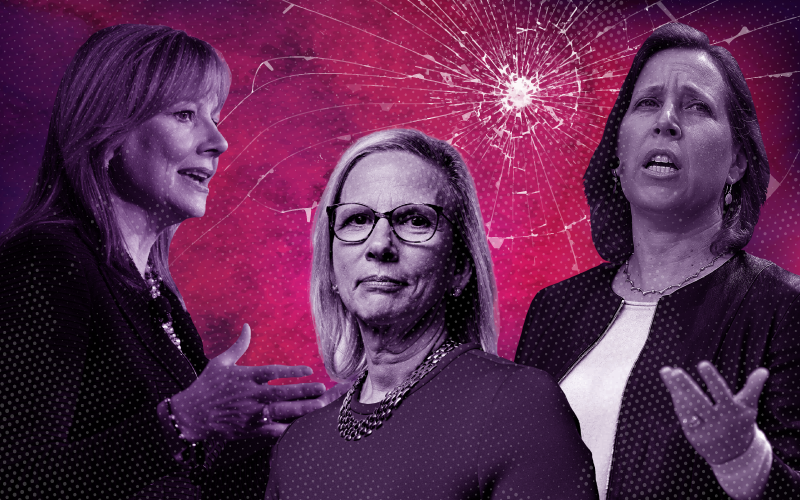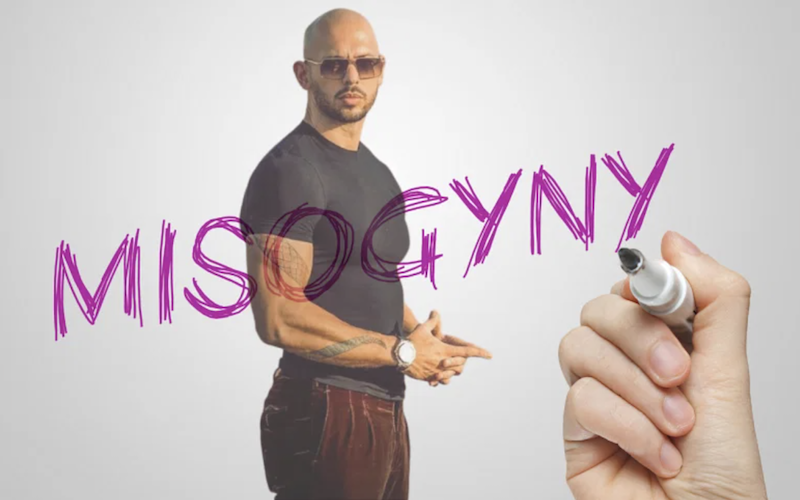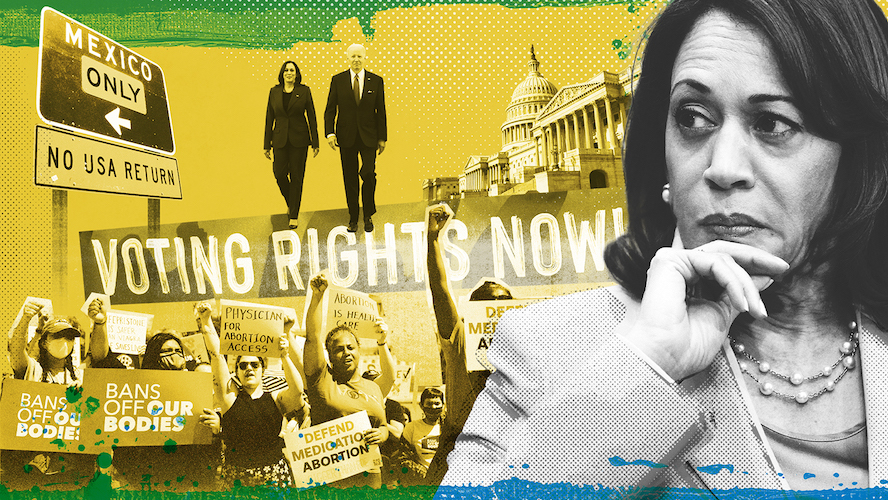Empowering women is a crucial aspect of creating a more just and equitable society. Despite significant progress over the years, women still face numerous challenges in various aspects of their lives, including education, employment, healthcare, and representation in leadership roles. Empowering women means providing them with the tools, resources, and support they need to succeed and reach their full potential, regardless of their gender. Below we will explore the empower women who paved the way for us.
1. Malala Yousafzai

Malala Yousafzai is a Pakistani activist for female education and the youngest Nobel Prize laureate. At the age of 11, Malala started blogging about her experiences living under Taliban rule, advocating for girls’ education. In 2012, she was shot by a Taliban gunman, but she survived and continued her activism. Malala’s courage and determination have made her a symbol of hope and a voice for young women everywhere.
Malala Yousafzai is a Pakistani activist who has been a prominent advocate for women’s education since she was just a child. Born in 1997 in the Swat District of Pakistan, Malala grew up in a family that valued education and encouraged her to speak out against injustice. Her father, Ziauddin Yousafzai, was an education activist and ran a school for girls, which provided Malala with an early education that laid the foundation for her future activism.
In 2007, the Taliban took control of Swat and banned girls from attending school. Malala, who was just 11 years old at the time, refused to be silenced and began writing a blog for the BBC about her experiences living under Taliban rule. She used the pseudonym “Gul Makai” to protect her identity and wrote about the challenges she faced in trying to attend school, as well as the atrocities committed by the Taliban.
Malala’s blog quickly gained international attention, and she became a prominent voice for girls’ education in Pakistan. Despite receiving threats from the Taliban, she continued to speak out and advocate for the rights of girls to receive an education. In recognition of her activism, Malala was nominated for the International Children’s Peace Prize in 2011 and was awarded Pakistan’s National Youth Peace Prize in 2012.
However, her activism put her in grave danger, and in October 2012, Malala was shot in the head by a Taliban gunman on her way home from school. Miraculously, she survived the attack and was flown to the UK for medical treatment. The attack only strengthened Malala’s resolve, and she continued to speak out for girls’ education from her hospital bed.
Since then, Malala has become a global advocate for girls’ education and has spoken out at numerous events, including the United Nations and the World Economic Forum. In 2014, she was awarded the Nobel Peace Prize for her advocacy work. At the age of 17, she became the youngest person ever to receive the award.
Malala’s courage and determination have inspired people around the world, and she continues to work tirelessly to improve the lives of girls and women. In 2013, she co-founded the Malala Fund with her father, which is dedicated to promoting girls’ education and supporting girls’ rights around the world.
Through the Malala Fund, Malala has worked to raise awareness about the barriers to education that girls face in developing countries and has supported projects that aim to increase access to education for girls. In addition to her advocacy work, Malala is also a prolific writer and has authored several books, including her memoir “I Am Malala” and a children’s book called “Malala’s Magic Pencil.”
Malala’s impact on the world has been profound, and she has inspired countless people to stand up for what they believe in and fight for a more just and equal society. Her courage and determination in the face of adversity serve as an example to us all, and her legacy will continue to inspire future generations of activists and advocates for social justice.
Malala Yousafzai is a true inspiration to us all. Her unwavering commitment to girls’ education and her courage in the face of danger serve as a reminder that even the smallest voice can make a difference. Her legacy will continue to inspire future generations of activists and advocates for social justice, and her vision of a world where all girls have access to education will remain a guiding light for us all.
2. Ruth Bader Ginsburg

Ruth Bader Ginsburg was an Associate Justice of the Supreme Court of the United States and a pioneering advocate for women’s rights. Throughout her legal career, Ginsburg fought tirelessly for gender equality and the protection of women’s rights. She paved the way for future generations of women in law and inspired countless others to fight for justice and equality.
Ruth Bader Ginsburg was an Associate Justice of the Supreme Court of the United States and a pioneering advocate for women’s rights. She was born in Brooklyn, New York, in 1933, and went on to graduate from Cornell University in 1954. After graduating, she attended Harvard Law School, where she was one of only nine women in her class. She transferred to Columbia Law School after her husband accepted a job in New York City, where she graduated first in her class.
Throughout her legal career, Ginsburg fought tirelessly for gender equality and the protection of women’s rights. She co-founded the Women’s Rights Project at the American Civil Liberties Union (ACLU) in 1972, which aimed to fight gender discrimination through strategic litigation. Ginsburg was involved in several landmark cases during her time at the ACLU, including Reed v. Reed (1971), where she successfully argued that the Equal Protection Clause of the Fourteenth Amendment prohibited discrimination on the basis of sex, and Frontiero v. Richardson (1973), which extended the protection of the Equal Protection Clause to military spouses.
In 1980, Ginsburg was appointed to the United States Court of Appeals for the District of Columbia Circuit, where she served until 1993 when she was appointed to the Supreme Court by President Bill Clinton. During her time on the Supreme Court, Ginsburg became known for her staunch defense of civil liberties and her unwavering commitment to the principles of equality and justice.
One of Ginsburg’s most significant contributions to the legal landscape was her work in expanding the scope of the Equal Protection Clause of the Fourteenth Amendment to cover gender discrimination. Prior to her time on the Court, the Equal Protection Clause had been used primarily to combat racial discrimination. Ginsburg argued that discrimination on the basis of sex should be treated with the same level of scrutiny as discrimination on the basis of race, which meant that laws that treated men and women differently had to be justified by a compelling government interest. This standard, known as intermediate scrutiny, has been applied in many cases since.
Ginsburg’s legal legacy is marked by her ability to change minds and to persuade her colleagues to see issues from a different perspective. She was a skilled writer and dissenter, and her opinions often captured the attention of the public and inspired debate. In 1996, Ginsburg famously dissented in United States v. Virginia, in which the Court upheld the male-only admission policy of the Virginia Military Institute. In her dissent, Ginsburg argued that the policy violated the Equal Protection Clause and that it reinforced stereotypes about women’s abilities. She wrote, “The constitutional equality of men and women – the concept of equal citizenship stature – is a fundamental tenet of our democracy.”
Ginsburg’s life and work were guided by a deep sense of justice and a commitment to equality. She faced discrimination and obstacles throughout her life, but she refused to let them define her or limit her aspirations. She was a role model and an inspiration to many, and her legacy continues to inspire people around the world to fight for justice and equality.
Ruth Bader Ginsburg was a trailblazer and a champion of women’s rights. Her work as a lawyer, judge, and justice on the Supreme Court has left an indelible mark on the legal landscape of the United States and beyond. Her commitment to the principles of equality and justice served as a beacon of hope for generations of women and minorities, and her legacy will continue to inspire future generations to fight for a more just and equitable world.
3. Maya Angelou
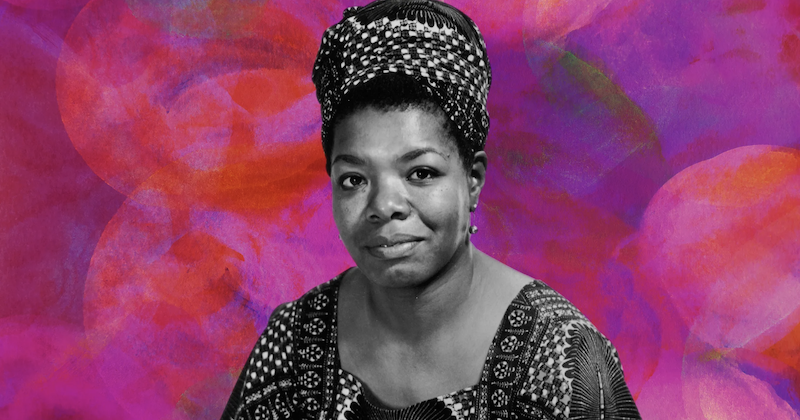
Maya Angelou was an American poet, memoirist, and civil rights activist. Her work centered on themes of racism, identity, and empowerment, inspiring generations of readers. Angelou’s words continue to resonate with people worldwide, reminding us of the power of the written word to heal and inspire.
Maya Angelou was an extraordinary American poet, memoirist, and civil rights activist. Her life and works are a testament to the power of the human spirit to overcome adversity and to inspire others to do the same.
Born Marguerite Annie Johnson on April 4, 1928, in St. Louis, Missouri, Angelou’s early years were marked by trauma and hardship. At the age of seven, she was raped by her mother’s boyfriend, and the man was later beaten to death by her uncles. As a result, Angelou became mute for five years, believing that her voice had caused the man’s death. She spent much of her childhood in the care of her grandmother in Arkansas, where she experienced racism and segregation.
Despite her difficult upbringing, Angelou found solace in literature and poetry. She began writing at a young age, and her love of language and storytelling would become the cornerstone of her career. Angelou’s first book, “I Know Why the Caged Bird Sings,” published in 1969, is a powerful memoir that chronicles her childhood and early adulthood. The book is a frank and honest portrayal of her experiences with racism, abuse, and trauma, but it also celebrates the resilience and strength of the human spirit.
Angelou’s work as a writer and poet has had a profound impact on American literature. Her poetry is known for its musicality and its themes of empowerment and self-discovery. In her poem “Still I Rise,” she writes, “You may shoot me with your words, / You may cut me with your eyes, / You may kill me with your hatefulness, / But still, like air, I’ll rise.” This poem, like many of Angelou’s works, is a celebration of the human spirit and a call to action for people to rise above adversity.
Angelou was also a tireless advocate for civil rights and social justice. She worked with Dr. Martin Luther King Jr. and Malcolm X during the Civil Rights Movement and was a vocal supporter of women’s rights. She was the first black woman to have a screenplay produced, and she was nominated for a Pulitzer Prize for her poetry collection “Just Give Me a Cool Drink of Water ‘Fore I Diiie.”
Angelou’s impact on American culture cannot be overstated. She was a trailblazer who paved the way for future generations of writers and activists. Her work continues to resonate with readers and inspire them to pursue their dreams and fight for justice and equality. In her own words, “I’ve learned that people will forget what you said, people will forget what you did, but people will never forget how you made them feel.”
Maya Angelou passed away on May 28, 2014, at the age of 86. However, her legacy lives on through her writing and her activism. She remains an inspiration to people all over the world who have faced adversity and who are fighting for a better future. As she once said, “We may encounter many defeats, but we must not be defeated.”
4. Ada Lovelace
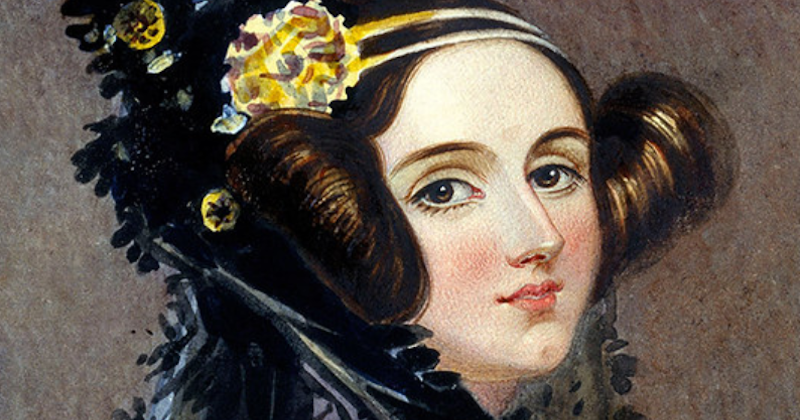
Ada Lovelace was an English mathematician and writer, known for her work on Charles Babbage’s early mechanical general-purpose computer, the Analytical Engine. She is often regarded as the world’s first computer programmer, having written a series of instructions for the machine. Lovelace’s contributions to the field of computing paved the way for future
Ada Lovelace was an English mathematician and writer who is known for her pioneering work on Charles Babbage’s early mechanical general-purpose computer, the Analytical Engine. She was born in London in 1815 and was the daughter of Lord Byron, the famous poet, and Annabella Milbanke, a mathematician. Lovelace showed an early aptitude for mathematics and science, and her mother encouraged her education in these fields.
Lovelace’s interest in science and mathematics led her to meet Charles Babbage, who was working on his revolutionary computer, the Analytical Engine. Babbage was impressed by Lovelace’s intellect and invited her to work with him on the project. Lovelace spent years working with Babbage, helping to refine and develop his ideas for the Analytical Engine.
During this time, Lovelace wrote a series of notes on the Analytical Engine, which were published in an article titled “Sketch of the Analytical Engine Invented by Charles Babbage” in 1843. In these notes, Lovelace included an algorithm for computing a sequence of Bernoulli numbers, making her the first person to write a computer program. She also envisioned the possibilities of the machine going beyond just number-crunching, and that it could eventually be used for creating music and art.
Lovelace’s work on the Analytical Engine was groundbreaking and she helped lay the foundation for the modern computer. Her notes were widely recognized for their insight and foresight, and they remained influential for decades to come.
Lovelace’s contributions to the field of computing were significant not only because she wrote the first computer program but also because she recognized the potential of computers to do more than just mathematical calculations. Her vision of computers as machines capable of creating art and music was ahead of its time, and her work continues to inspire researchers and engineers in the field of computer science today.
Lovelace’s life was marked by tragedy, however. She suffered from poor health throughout her life and died at the age of 36 due to cancer. Despite her short life, Lovelace left a lasting legacy in the field of computing.
In the years since Lovelace’s death, her contributions to the field of computing have been recognized and celebrated. In 1980, the United States Department of Defense named a computer language after her, which is used by the military and civilian sectors alike. Additionally, the Ada Lovelace Award is given annually to women who have made significant contributions to the field of computing.
Lovelace’s legacy serves as a reminder of the power of imagination and creativity in science and technology. Her ability to see beyond the confines of current technology and imagine what could be possibly helped pave the way for future advancements in computing.
Ada Lovelace’s contributions to the field of computing were significant and far-reaching. Her work on the Analytical Engine laid the foundation for the modern computer, and her vision of computers as machines capable of creating art and music was ahead of its time. Lovelace’s legacy continues to inspire researchers and engineers in the field of computer science today, and her life serves as a reminder of the power of imagination and creativity in science and technology.
developments in technology.
5. Wangari Maathai

Wangari Maathai was a Kenyan environmental and political activist, who founded the Green Belt Movement, an organization dedicated to planting trees, conservation, and community development. She was the first African woman to receive the Nobel Peace Prize in 2004 for her contributions to sustainable development, democracy, and peace. Maathai’s legacy continues to inspire environmental and social activists around the world.
Wangari Maathai was a Kenyan environmental and political activist who left an indelible mark on the world. Born in 1940 in the town of Nyeri, Kenya, Maathai was the first woman in East and Central Africa to earn a doctoral degree and went on to found the Green Belt Movement, an organization dedicated to planting trees, conservation, and community development.
Maathai’s early life was marked by struggle. She grew up in a rural area, and her family struggled financially. Despite these challenges, Maathai was a dedicated student and earned a scholarship to study biology in the United States. She went on to earn her bachelor’s and master’s degrees from the University of Pittsburgh, and her PhD from the University of Nairobi.
Throughout her life, Maathai was a fierce advocate for environmental protection, democracy, and social justice. She believed that these issues were interconnected and that environmental degradation was not only a threat to the natural world but also to human rights and social justice. In 1977, she founded the Green Belt Movement, which aimed to address environmental degradation and deforestation by planting trees and empowering communities to take action.
The Green Belt Movement was initially focused on Kenya, but it soon grew to become an international movement, with branches in countries across the globe. The organization has planted millions of trees, trained thousands of people in sustainable agriculture and land use, and promoted conservation and community development in rural areas. Through her work with the Green Belt Movement, Maathai helped to inspire a generation of environmental activists and advocates for social justice.
Maathai’s commitment to democracy and social justice was also evident in her political activism. She was a vocal critic of Kenya’s government, which was often corrupt and authoritarian, and she was repeatedly arrested and detained for her political activities. Despite these challenges, she continued to speak out against injustice and to advocate for democratic reform. In 2002, she was elected to Kenya’s parliament, becoming the first woman to hold the position of assistant minister for environment and natural resources.
In 2004, Maathai was awarded the Nobel Peace Prize, in recognition of her “contribution to sustainable development, democracy and peace.” She was the first African woman to receive the award. The Nobel Committee praised Maathai’s work with the Green Belt Movement, noting that she had “taken a holistic approach to sustainable development that embraces democracy, human rights, and women’s rights in particular.”
Maathai’s legacy continues to inspire environmental and social activists around the world. Her commitment to environmental protection, democracy, and social justice serves as a powerful reminder that these issues are interconnected and that we must work to address them together. Through her work with the Green Belt Movement, Maathai demonstrated that even small actions, like planting a tree, can have a powerful impact on the world around us. And through her political activism, she showed that it is possible to speak truth to power, even in the face of significant obstacles.
Wangari Maathai was a true visionary and an inspiration to us all. Her dedication to environmental protection, democracy, and social justice serves as a powerful reminder that we must work together to create a better world. Her legacy lives on through the millions of trees that have been planted through the Green Belt Movement, and through the countless activists and advocates for social justice who continue to be inspired by her example.
These five women have shown us that it is possible to overcome obstacles and make a difference in the world. Their dedication, courage, and passion have made them true icons and role models for future generations of women.










